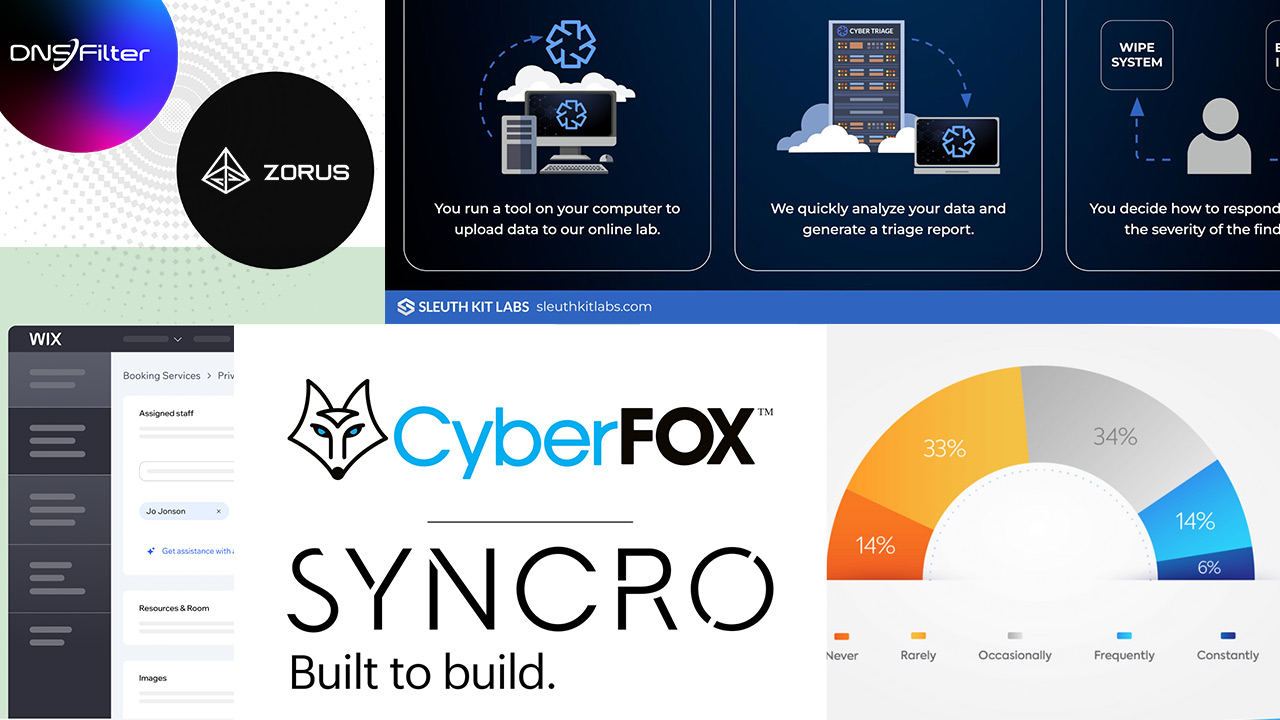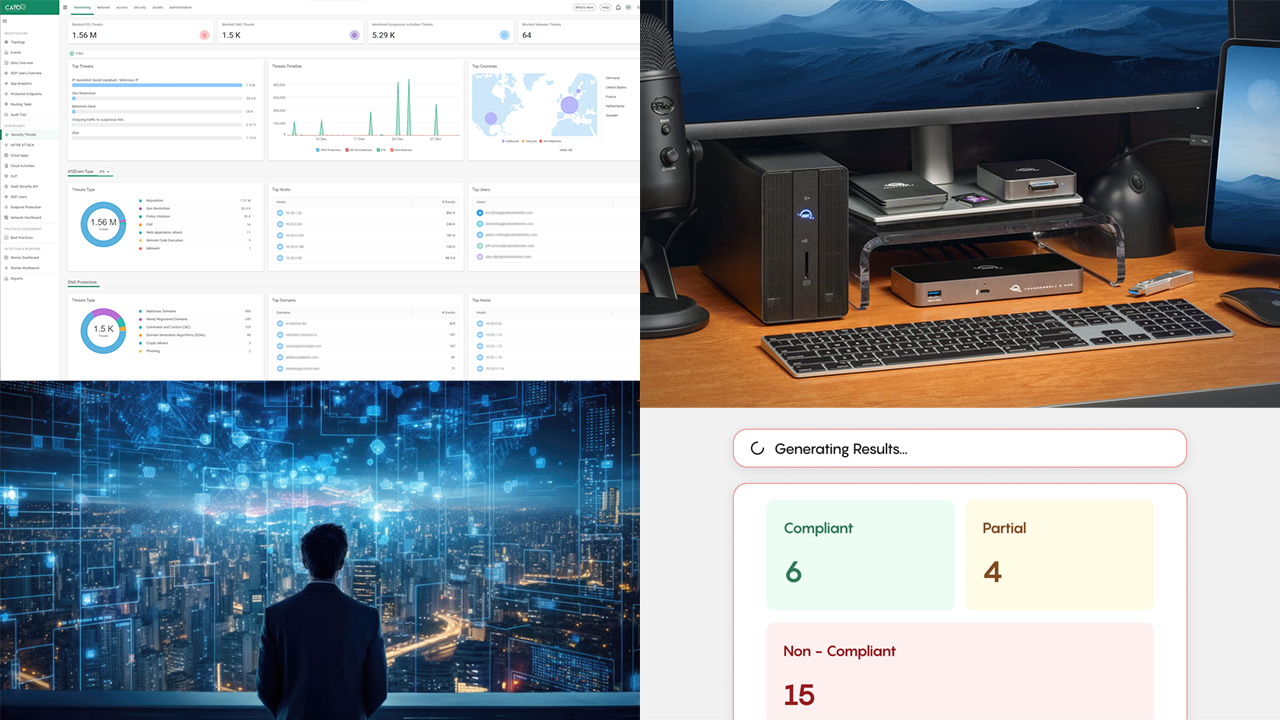IT management software vendor Kaseya Ltd. has purchased RapidFire Tools Inc. and launched a new compliance management solution based on that company’s technology.
Terms of the deal, which Kaseya hinted at in a recent conversation with ChannelPro, were not disclosed.
“Compliance has without a doubt become a mainstream concern slash requirement for small to midsize businesses around the world,” says Fred Voccola, CEO of Kaseya, which has dual headquarters in New York and Miami. “MSPs that serve these small to midsize businesses have a tremendous opportunity to come in and deliver compliance management as a service.”
Headquartered in Atlanta, RapidFire Tools is the vendor behind a portfolio of solutions for MSPs that includes Network Detective, an IT assessment tool currently used by over 6,000 managed service providers; Cyber Hawk, an insider threat detection solution; and InDoc, an entry-level documentation system officially introduced last week, among other solutions.
The most strategic part of its portfolio for Kaseya in the short term, though, is Audit Guru, which helps MSPs and the businesses they serve automate and demonstrate compliance with laws like the European Union’s recently enacted General Data Protection Regulation (GDPR).
“RapidFire Tools has the only automated product suite that MSPs can leverage to deliver that service,” Voccola says. “Compliance is a huge hole in the market and now we have the Cadillac in that space in the portfolio.”
The new compliance management system announced today was developed jointly by Kaseya and RapidFire Tools, which have been collaborating closely for well over a year and which officially completed the acquisition revealed today several months ago. Named Kaseya Compliance Manager and based heavily on Audit Guru, the system is designed to help MSPs manage customer obligations under GDPR, HIPAA, PCI-DSS, and other regulations.
Unlike Audit Guru, Voccola emphasizes, Kaseya Compliance Manager is a fully embedded feature of Kaseya’s VSA remote monitoring and management platform, rather than a separate solution that shares data.
“It’s not just integrated,” he says. “It’s actually a component of the RMM.” The end result for technicians, Voccola continues, is fewer interfaces to master, and therefore greater productivity.
“Technicians get crushed. They have to know so many different products and do so many different things for their customers,” he says. “We try to make it easy.”
Kaseya has “definitive” plans, he continues, to introduce new products that similarly embed functionality from RapidFire Tools products such as Network Detective and Cyber Hawk directly in VSA beginning several months from now.
Voccola is amenable to integrating every bit as closely with RMM products from other vendors as well.
“I wouldn’t be surprised if in the future we look to build integrations with other RMM providers like Pulseway or Continuum or others where it’s that same level of integration,” he says. “It’s a major investment, so others will have to want to do it, but we’re more than open to doing that and I think that one of our strategies at RapidFire is we continue to do that.”
RapidFire Tools will continue to operate independently under that name as a Kaseya business unit. Michael Mittel, the company’s CEO, will remain in that role as well.
“This is what I do. This is what I love,” Mittel says. “I don’t think that Kaseya would have been interested in purchasing the company and I wouldn’t have been interested in selling the company if that weren’t the case.”
RapidFire Tools will also continue to sell, support, and enhance all of the products it currently offers. The big difference, according to Voccola, is that the company will have more money at its disposal, and will therefore make faster progress down more ambitious product roadmaps going forward.
“We have a very strong balance sheet,” he says. “We’re putting a lot of capital in to accelerate those plans.”
All RapidFire Tools solutions, Mittel stresses, will continue to integrate as they do today with RMM, PSA, and other systems from vendors other than Kaseya.
“One of the things that was made quite clear when we were discussing this [is] Fred wanted really for us to maintain our brand and our independence and for us to associate and have relationships with other vendors in the industry, so there’s no conflict there,” he says.
For Mittel, joining forces with Kaseya offered an opportunity to introduce RapidFire Tools products to mid-market enterprise IT departments in a serious way for the first time.
“That was always a space that we wanted to be in, and this gives us a way to do it,” he says, adding that Kaseya has a stronger presence than RapidFire Tools in Europe, Asia, and other global market as well.
Kaseya and RapidFire Tools plan to maintain separate technical support and sales organizations. They will introduce closer ties between the two companies’ partner programs, however. Kaseya, Voccola notes, holds some 50 events and conferences around the world annually.
“[RapidFire Tools] customers will have access to all those programs,” he says. “That’s an area where you will see a lot of Kaseya and RapidFire Tools working together.”
The RapidFire Tools solution set is the newest member of a managed services product suite that Kaseya has been expanding all year. Early in March, the company rolled out its first appliance-based business continuity/disaster recovery solution, which it developed in collaboration with Unitrends Inc., of Burlington, Mass.
Days later, Kaseya added tightly embedded documentation functionality to IT Complete via a source code-level integration alliance with IT Glue, of Vancouver, B.C. That was followed the next month by the unveiling of a similar partnership with Spanning Cloud Apps LLC, of Austin, Texas, that contributed cloud-to-cloud backup functionality to Kaseya’s platform. In May, meanwhile, Kaseya and Unitrends merged.
RapidFire Tools introduced its first documentation product last week. Called InDoc, that system is an add-on for Network Detective Reporter, which in turn lets users of the Network Detective assessment solution produce reports for use internally and with customers. Available free of charge, InDoc is designed to be a lightweight, entry-level documentation system for newcomers to managed services and smaller MSPs, rather than a replacement for more robust products like IT Glue.













